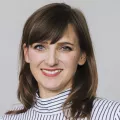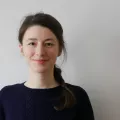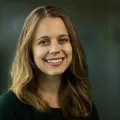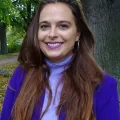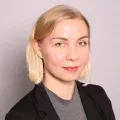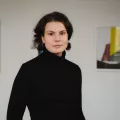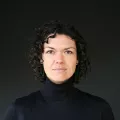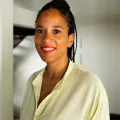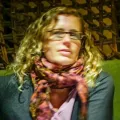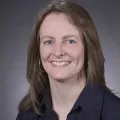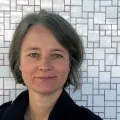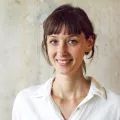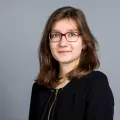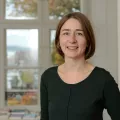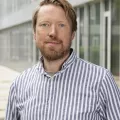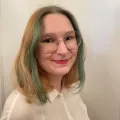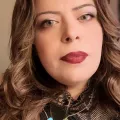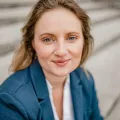About the Project
Starting Points
Art created in the GDR has been the subject of controversial debates since the 1990s. To this day, its (art) historical location and social relevance are discussed and questioned in academia and in the context of exhibitions. Prominent examples of this struggle for remembrance are the "deutsch-deutscher Bilderstreit" or the disputes surrounding the listing of architecture from the GDR as monuments. In this context, art production in the GDR is often portrayed pejoratively as provincial and self-referential. International relations are usually located in the so-called Eastern Bloc. It is hardly known that the GDR's network of contacts and exchange relationships in the field of visual art and architecture spanned almost the entire globe. Forms of this contact could be, for example, exhibition cooperations, artists' trips, or student exchanges.
Research Goals
Against this background, a broad transcultural perspective on artistic production in the GDR is essential to fundamentally re-situate the history of art in the GDR as an "art history of contact" (Kravagna 2013). In doing so, unknown spaces and restrictions of contact are illuminated beyond Eurocentric narratives. Special attention will be paid to stories and perspectives of actors from countries of the Global South. The diversity of voices and memories will provide space for intersectional perspectives and contradictions. Art in Networks - The GDR and its Global Relations aims to establish this new perspective and to communicate it to the public in the form of a digital platform. The REACT-research group is funded by the ESF between February and December 2022, and is located at the Chair of Visual Studies in Global Context at TU Dresden.
Art in Networks aims to make visible the connections between artists, architects, museums, and other cultural actors between the GDR and countries in Africa, Asia, and Latin America, and to trace the international networks that emerged in the process. Using individual "nodes" as examples, the project will examine where and how forms of private and institutional artistic exchange took shape. To what extent did cultural-political relationships materialize? Where did the boundaries of official exchange lie within the political framework? How were they sometimes transgressed in private? Where can traces of these contacts still be found today?
For this purpose, text and video contributions are created, which are mainly based on interviews with contemporary witnesses. The contributions are visualized in a timeline that is intended to go beyond the linear development of the GDR's international relations in the field of art and to show the ongoing emergence of networks up to the present. Focal points result from the individual research of the contributors. In addition to the interviews with contemporary witnesses, academic experts will offer interdisciplinary and international perspectives on the topics of Art in Networks. In interviews with scholars, archivists, and curators, for example, research approaches, exhibition and collection practices, and individual objects will be discussed.
Our Approach and Open Questions
Art in Networks explores the possibilities of oral art history as a method to link memories of contemporary witnesses with the materiality of works, artifacts and other sources in video interviews. The contemporary and personal perspective of the interviewees on past encounters, experiences and events also highlights the affective and emotional dimension of these art history(s).
While oral history is already established in historical studies, interviews are rarely used in art history. The format of a digital research platform with video contributions therefore also poses methodological difficulties and complex questions. For example, the interviews reflect self-assessments and subjective perspectives on the politics, culture, and society of the GDR and other countries, which cannot always be verified and historically contextualised in detail. We try to indicate political attitudes and, for example, contacts of the protagonists with the state security of the GDR, if known. At the same time, we are aware of how much we are deferring this point, which is often strongly emphasized in GDR research, in our project. A more in-depth exploration of these issues is not possible during the short duration of the project. Within our framework, we can only point to research literature that deals with the conflicting issues of living and working conditions in the GDR, where artistic freedom, like many other areas, was severely restricted by the repressive system.
Another challenge was to capture a range of voices as diverse as possible, because this intention is faced with a historical reality of predominantly white and male protagonists in the art world. We try to counteract this one-dimensionality and specifically include other perspectives.
And last but not least, it is important to question our handling of the material. For publication, all videos were edited by the Art in Networks team. During post-production, some wording that we perceived as racist and/or discriminatory was removed. Furthermore, Art in Networks is aware that racist and discriminatory thoughts and actions can express themselves in many ways. They are often not even recognized as such by those who are not affected. This may also be the case for the Art in Networks team.
The fact that the international contacts of the protagonists were sometimes characterized by asymmetrical power relations and Eurocentrism becomes clear and also requires further evaluation. During post-production, many questions were therefore raised: How can exoticizations, stereotypes and racisms be dealt with without reproducing them - but also without concealing them? Can the video material stand on its own with only a brief historical-political contextualization by us?
We hope that the collection of material will be further used for academic studies with concrete questions in the future.
Art in Networks does not see itself as a self-contained research project, but attempts to create a dynamic digital space in which scholarly exchange is facilitated and processed for a broad audience. Historical as well as current artistic explorations of the topic of the "global GDR" will be presented. At the same time, the new platform will be anchored in the existing research field. The project does not claim to be complete. The constantly growing platform is also intended to serve as a ressource for further research or art projects and is open to supplementary contributions, criticism and suggestions.
Acknowledgements
Our thanks go to all the interviewees who were willing to share stories of their life and work with us. We would also like to thank interviewees who were not comfortable with the idea of a video interview and who found other ways with us to tell their stories.
We would also like to thank the contributors, cooperating partners, the Advisory Board, the Fellows, and everyone who was involved in the project.
Art in Networks is a constantly growing project, suggestions, feedback and comments are welcome at artinnetworks@tu-dresden.de.
Project term: February 1 to December 31, 2022.

